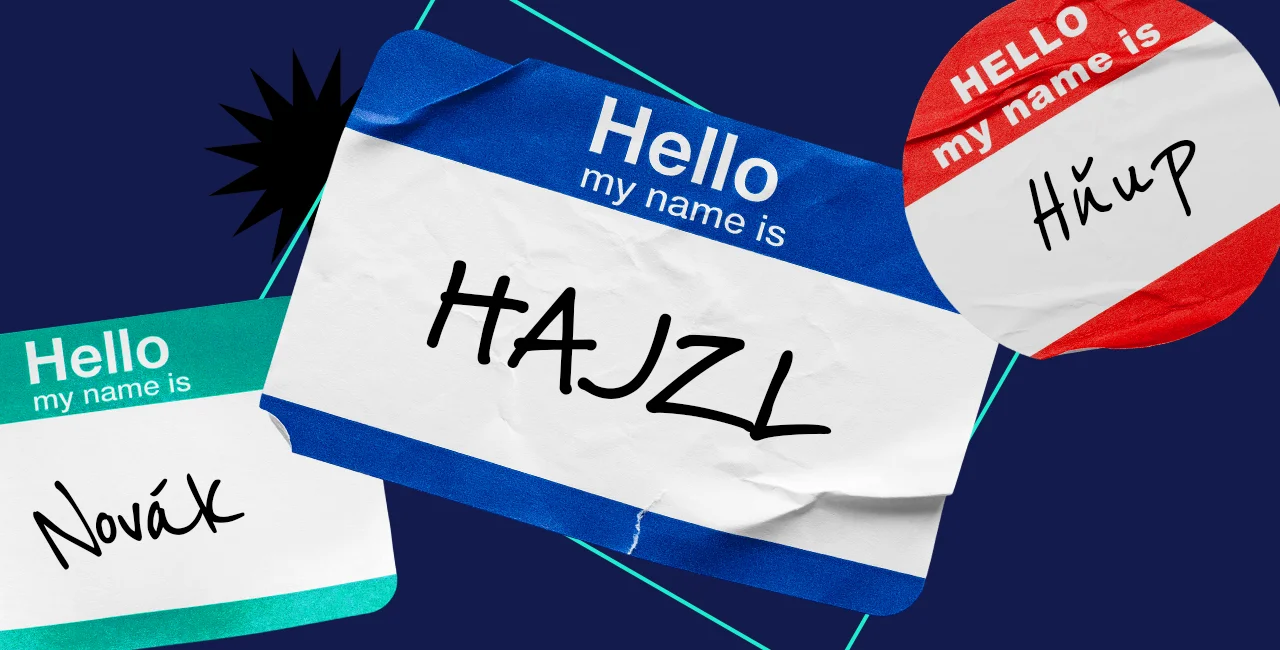In the Czech Republic, surnames are more than identifiers—they’re familial links to history, status, and sometimes humor. Many common surnames, like Novák, Svoboda, or Novotný, convey ordinary meanings, yet some Czech names draw surprised reactions, laughter, or even embarrassment.
From surnames like Nevím (which means "I don’t know") to the more infamous Hajzl (Czech slang for "jerk"), these unusual names offer a unique insight into Czech cultural quirks and the occasional oddity of the language itself.
Surname origins and prevalence
In Czech tradition, surnames often reflect ancestors' professions, attributes, or locations. According to data from the Czech Ministry of Interior, over 400,000 unique surnames were registered in the country in 2016, a number that includes not only well-known names but also rare, amusing, and even eyebrow-raising ones.
The most common names—such as Novák, held by over 68,000 people, and Svoboda, claimed by over 51,000—don’t stir much attention. However, other surnames are far less subtle in their implications. People with these surnames may often find themselves in amusing or challenging social situations as a result.
"What's your name?" "I don't know."
The Czech surname Nevím literally means “I don’t know.” The 105 people bearing this name may sometimes find themselves in humorous misunderstandings. While amusing for some, it can lead to frustrating moments during formal identification.
On the other hand, Zadek (meaning “buttocks”) could inspire humor without overtly offending, though it still makes for awkward introductions. Around 24 Czechs bear this name.
Another curious example is Urvinitka, which is Czech slang for a clumsy person. Though rare, it suggests a person who, despite good intentions, may have a knack for mishaps. For Straširybka, which translates as “scary fish,” the name might hint at a relationship with the sea or fishing.
"Who was that?" "Some jerk."
The Czech surname Hajzl must be one of the country's more unfortunate, directly translating to a vulgar and common term for “toilet” or “jerk.” With only a handful of people bearing this name, it likely prompts humorous or uncomfortable situations in everyday interactions.
The surname Štětka translates to "brush" in Czech, but it also carries a slang meaning, often referring to someone with a promiscuous reputation. With hundreds of people sharing this name, it may evoke mixed reactions due to its double meaning.
Similarly, Hňup (meaning “fool”) might appear offensive in modern usage, but the name is shared by 22 Czechs. Oslizlo (suggesting “slimy”) can also provoke unusual reactions.
Krutý (“cruel“) and Zlý (“evil“) might also give an impression of severity or harshness, but they are shared by dozens of Czechs. These names likely come from historical times where unflattering terms were preserved, perhaps as jokes or to highlight personality traits.
Surnames in data
The Czech Interior Ministry published annual and comprehensive data on surname frequency in the Czech Republic—until the year 2016. Due to current GDPR regulations, the Ministry unfortunately no longer shares this data.
Historical data on surname frequency through 2017 in the Czech Republic can still be found at prijmeni.cz, where the numbers in this article come from. Data on common baby names can be found yearly from the Czech Statistical Office.












 Reading time: 2 minutes
Reading time: 2 minutes 























